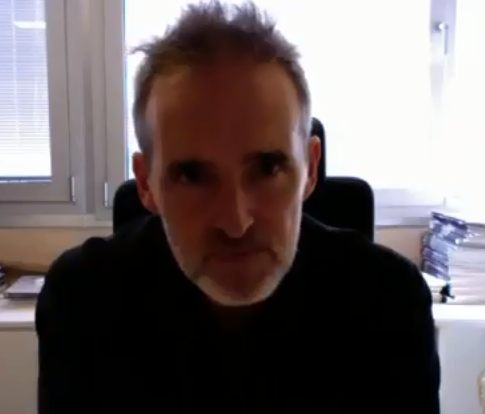
Spain’s biggest newspaper, El Pais, launched a paywall strategy at the start of May, having delayed it by two months at the start of the Covid-19 pandemic, and has already reached more than 90,000 digital subscribers.
This makes its number of paying online readers already more than double its 45,000 print subscribers (who can also access the website).
Managing editor Borja Echevarría (pictured) said the decision to delay came during “heated discussions” in the week before it was due to go live on 1 March, after the World Health Organisation declared the coronavirus as a public health emergency of international concern.
Some of the team thought they should take advantage of the pandemic, which could be a “great moment to get subscribers”, he said, whereas others thought it could be an opportunity to “establish a strong relationship with the audience” before asking them to subscribe.
The metered paywall, which allows visitors to read ten free articles per month before they must subscribe, instead launched on 1 May.
Speaking on a webinar for the Reuters Institute for the Study of Journalism on Wednesday, Echevarría said: “We thought we could spend those months showing the importance of the kind of journalism we do and in many ways I think instead of a traditional marketing campaign the Covid became our best communications and marketing campaign.”
He predicted that the website will reach 100,000 subscribers before the strategy marks its first anniversary in May. In addition, El Pais has around 3.5m registered users.
The digital subscribers are similar to the print readers in demographic, but slightly younger. Both are a “little bit too masculine” and a “little bit too old”, Echevarría said.
Initially, subscriptions were the same price – €10 per month – around the world but this has since been slashed to half the price in countries such as Mexico and Colombia.
“We believe we have a huge opportunity outside Spain,” Echevarría said. “In Spain, we have a roof, we have 45m citizens. We have 400m people who speak Spanish in the world.”
Echevarría said if the subscription strategy had launched in March the website would probably have 20,000 more subscribers now, but that the intervening period had helped to “generate addiction” within readers and that it is a “long-term bet”.
El Pais saw record traffic in March and April, with 180m unique browsers in April.
“I truly believe that was a good decision to wait,” Echevarría said.
He added: “People in Spain were in lockdown, they were thirsty for trustworthy information, they were potential subscribers and in some ways, we were generating an addiction to news before we launched the paywall.”
[Read more: Early days of Covid-19 pandemic sends global news traffic soaring]
Echevarría said El Pais had also had some luck that made it well suited to covering the Covid-19 pandemic, including the fact it is a global newspaper with the biggest network of correspondents in the Spanish speaking world plus a newsroom of 30 in Mexico and 20 in Brazil.
In addition, the title had around a dozen dedicated health and science journalists and had started rebuilding its data and visualisation team just six months previously which allowed it to meet the huge demand for such content.
Of the newsbrand’s top 20 stories of 2020, about 14 were produced by the data and visualisation team, he estimated.
The biggest challenges of launching a new business strategy during the pandemic included the “very silos based” culture between departments and the communication of changes to KPIs [key performance indicators] to staff.
“As so many journalistic companies, we don’t communicate very well inside the company and this is a big challenge,” Echevarría said.
He added: “To be honest print is still a challenge. We have been for a decade talking about digital transformation, going digital-first, and the reality is… the burden of print in terms of culture and processes is still there but it’s now or never. My feeling is that we accelerate.
“As we all know as with everything in our lives this pandemic has accelerated everything by three or four years: how we buy, how we connect to our friends, how we consume news, it’s like we’re in 2025, so we can’t afford for print to be a burden anymore.
“I think print can still play a role at a newspaper like El Pais but you have to be very careful it doesn’t have a negative impact in the way you work, your transformation.”
Picture: Screenshot/Youtube/Reuters Institute for the Study of Journalism
Email pged@pressgazette.co.uk to point out mistakes, provide story tips or send in a letter for publication on our "Letters Page" blog
